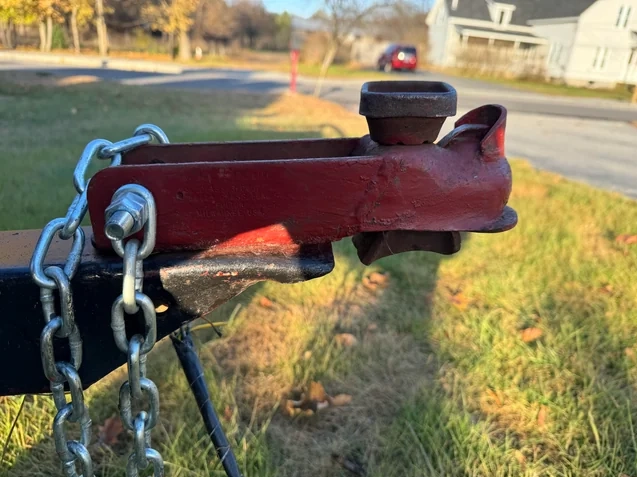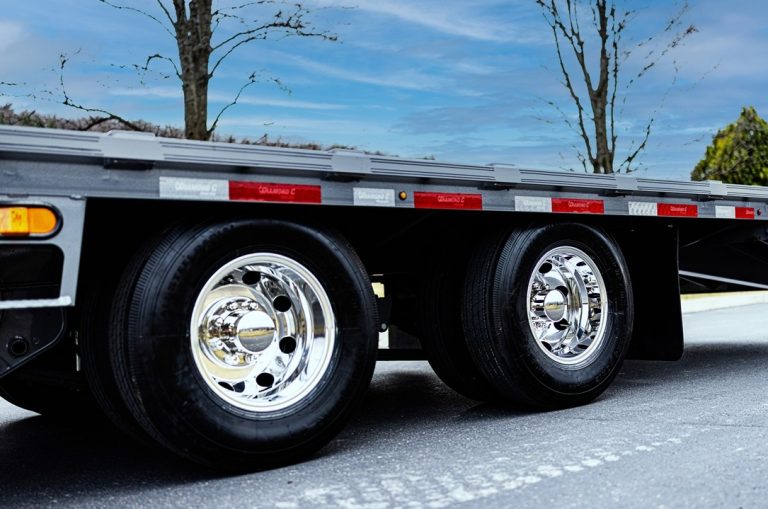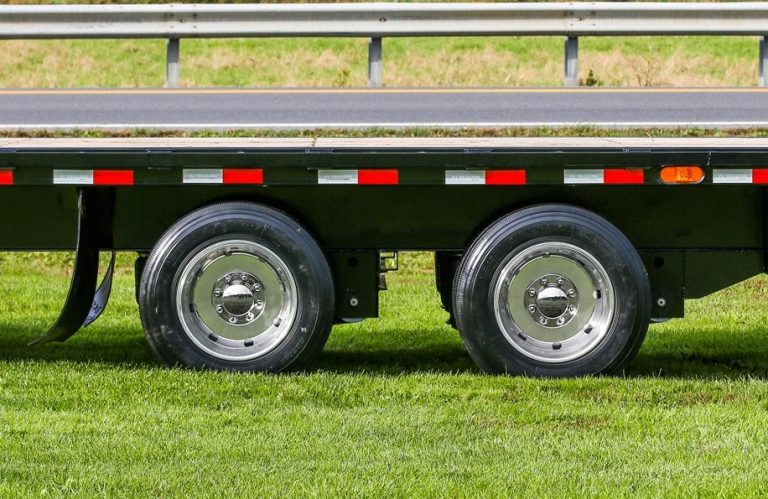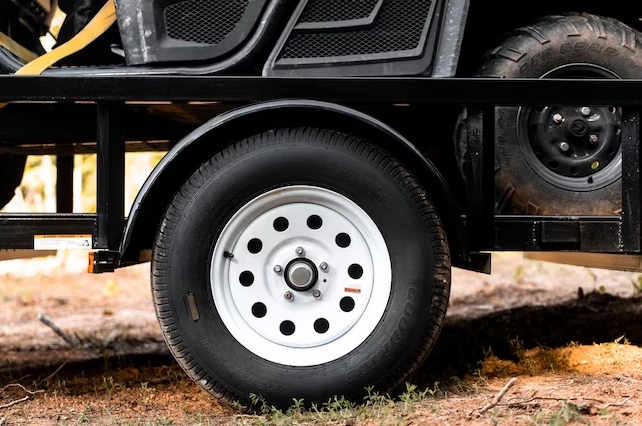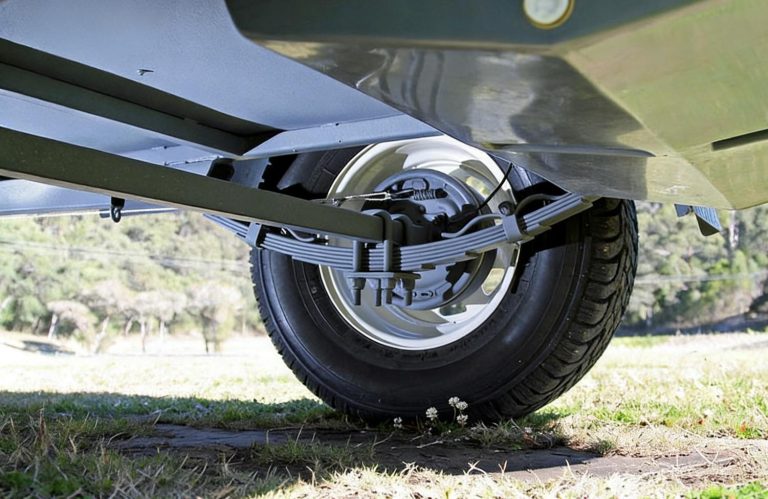Acopladores de remolque son súper importantes para el remolque seguro. Enganchan su remolque a su vehículo. Pero a veces, causan problemas. Para los propietarios de trailer, conociendo el tipos de acopladores de remolques y sus problemas comunes pueden salvarlo de grandes molestias. Problemas como pestillos rotos, óxido o conexiones temblorosas pueden estropear su viaje.
Esta guía explica los problemas frecuentes de acopladores del remolque y ofrece consejos fáciles para solucionarlos. Aprenderá a detectar problemas, resolverlos y mantener su remolque suave. ¡Vamos a sumergirnos!
¿Qué son los acopladores de trailer y por qué importan?
Un acoplador de remolque es una herramienta en la lengua del remolque. Agarra la pelota de enganche en su vehículo. Esto permite que el remolque gire con el vehículo mientras permanece bloqueado en su lugar. El tipos de acopladores de remolques—-Como acopladores de pelota, acopladores de marco A y acopladores de cuello de cisne—ajustar diferentes remolques y pesas. Si un acoplador se rompe, el remolque se pone arriesgado. Podrías tener accidentes o daños. Aprender problemas y soluciones comunes ayuda a mantenerlo a salvo.
¿Por qué ocurren problemas de acoplador de remolques?
Los problemas de acoplador provienen de algunas cosas:
- Tener puesto: Usarlo mucho debilita las piezas.
- No hay cuidado: Omitir la limpieza o el engrasamiento causa óxido o mermeladas.
- Uso incorrecto: Bad Hitch Ball tamaños o demasiado peso estrés el acoplador.
- Clima: La lluvia, la sal o la nieve empeora el óxido.

Los problemas de soluciones temprano mantienen su acoplador de remolque funcionando bien.
Problemas de acoplador de remolque frecuentes
Veamos los problemas más comunes con tipos de acopladores de remolques. Estos pueden estropear su remolque si no se solucionan.
Pestillos rotos
El pestillo bloquea el acoplador del remolque en la pelota de enganche. Si se rompe, el trailer puede tambalearse o soltarse. Eso es peligroso.
Signos de un pestillo roto
- El acoplador no se mantiene apretado en la pelota de enganche.
- Escuchas ruidos de golpes o traqueteo mientras conduces.
- El mango del pestillo se siente ondulado o no se bloqueará.
Por qué pasa
- Piezas antiguas: Resortes o alfileres se desgastan de mucho uso.
- Suciedad: Mud o pequeñas rocas se atasquen en el pestillo.
- Ajuste incorrecto: Una pelota de enganche que es demasiado grande o pequeña evita que el pestillo funcione.
Cómo arreglar un pestillo roto
- Compruébalo: Busque alfileres dobles, resortes rotos o suciedad. Use un cepillo o aire para limpiarlo.
- Engrasarlo: Ponga grasa en partes móviles para que se deslicen mejor.
- Intercambiar piezas malas: Si se disparan resortes o pines, obtenga otros nuevos del fabricante.
- Coincidir con la pelota: Asegúrese de que la bola de enganche (como 2 "o 2-5 /16”) se ajuste al acoplador.
- Probarlo: Conecte el acoplador y tire suavemente para verificar si está apretado.
Si el pestillo es realmente malo, obtenga un nuevo acoplador por seguridad.
Óxido y desgaste
El óxido es un gran problema, especialmente cerca del océano o en lugares húmedos. Hace que el acoplador débil y sea más probable que se rompa.
Signos de óxido
- Manchas rojas o marrones en el acoplador.
- El pestillo o las piezas son difíciles de mover.
- El metal se ve picante o escamoso.
Por qué pasa
- Agua: La lluvia, la nieve o el aire salado causan óxido.
- Revestimiento: Acopladores sin buena protección óxido más rápido.
- Sin limpieza: No limpiar deja agua y suciedad en el acoplador.
Cómo arreglar el óxido
- Limpiarlo: Óxido de fregado con un cepillo de alambre o papel de lija. Use un limpiador de óxido para puntos difíciles.
- Agregar protección: Pinte el acoplador con spray a prueba de óxido o un recubrimiento especial.
- Piezas de grasa: Ponga grasa en las bisagras y los pestillos para detener más óxido.
- Almacenar inteligente: Mantenga el remolque en un lugar seco y cubierto cuando no se use.
- Obtenga uno mejor: Si el óxido sigue regresando, pruebe un acoplador de acero galvanizado o de acero inoxidable.
La limpieza a menudo deja de que el óxido empeore.
Conexiones temblorosas o sueltas
El temblor ocurre cuando el acoplador del remolque no encaja apretado en la pelota de enganche. Esto hace que el remolque sea tambaleante e inseguro.
Signos de temblor
- El remolque se mueve o se balancea mientras conduces.
- Te sientes sacudido en el vehículo de remolque.
- El acoplador se levanta un poco de la pelota durante las curvas.
Por qué pasa
- Tamaños incorrectos: El acoplador y la bola de enganche no coinciden (como un acoplador de 2 "en una pelota 1-7 /8”).
- Desgastado: El interior del acoplador se suelta del uso.
- Mal equilibrio: El peso desigual del remolque causa gravamen.
Cómo arreglar el sacudido
- Verifique el tamaño de la pelota: Asegúrese de que la bola de enganche coincida con el acoplador (como 1-7 /8”, 2 ", o 2-5 /16”).
- Busque el desgaste: Verifique el zócalo del acoplador para dañar. Reemplácelo si está suelto.
- Equilibrar la carga: Extienda la carga del remolque de manera uniforme para que no sea demasiado pesado en la parte delantera o posterior.
- Agregar control de balanceo: Use herramientas de control Sway para que los grandes remolques dejen de tambalearse.
- Apriete todo: Asegúrese de que todos los pernos y tornillos estén ajustados.
Un acoplador apretado deja de temblar y hace que el remolque sea más seguro.
Difícil de conectar o desenganchar
A algunas personas les resulta difícil unir o quitar el acoplador del remolque. Esto es común con tipos de acopladores de remolques Como Un marco o cuello de cisne.
Señales de problemas de conexión
- El acoplador no se desliza sobre la bola de enganche fácilmente.
- El pestillo se pega cuando intentas desenganchar.
- Necesita empuje adicional para enganchar o desenganchar.
Por qué pasa
- Mal alineación: La lengua del tráiler y la pelota de enganche no son incluso.
- Sin grasa: Las piezas secas hacen que sea difícil moverse.
- Piezas rotas: Piezas dobladas o desgastadas deja de enganchar suaves.
Cómo solucionar problemas de conexión
- Alinearlo: Haga que la lengua del remolque se nivele con la pelota de enganche. Use un gato para arreglar la altura.
- Engrasarlo: Coloque la grasa en la pelota de enganche y el enchufe de acoplador para un fácil deslizamiento.
- Verifique los descansos: Busque pestillos doblados o enchufes desgastados. Reemplace las piezas malas.
- Práctica: Baje el acoplador lentamente sobre la pelota. Asegúrese de que el pestillo se bloquee.
- Prueba QuickPin: Para conexiones más fáciles, use un acoplador QuickPin si se adapta a su remolque.
Buena alineación y cuidado simplifican.
Demasiado peso
La sobrecarga ocurre cuando el peso del remolque es más de lo que el acoplador puede manejar. Esto lo estresa y puede causar descansos.
Signos de demasiado peso
- El acoplador tiene grietas o curvas.
- El vehículo de remolque se siente débil tirando del remolque.
- El acoplador se suelta repentinamente.
Por qué pasa
- Demasiado pesado: El peso del remolque está sobre el límite de peso bruto del remolque (GTW) del acoplador.
- Acoplador incorrecto: Un acoplador de servicio ligero se usa para un remolque pesado.
- Mal peso extendido: La carga desigual ejerce presión adicional sobre el acoplador.
Cómo arreglar demasiado peso
- Verifique el límite de peso: Asegúrese de que la calificación GTW del acoplador sea más alta que el peso del remolque con carga.
- Elija el acoplador correcto: Use uno pesado (como cuello de cisne) para grandes remolques.
- Extender el peso de manera uniforme: Balance de carga para evitar demasiado peso en la lengua.
- Actualizar si es necesario: Obtenga un acoplador más fuerte para cargas pesadas.
- RETRAJE: No remolque más de lo que su vehículo puede manejar.
Emparejarse al acoplador con el peso del remolque sigue siendo seguro.
Mantener acopladores de remolque en buena forma
Detener problemas antes de que comiencen es más fácil que arreglarlos. La atención regular mantiene su acoplador de remolque funcionando muy bien.
Consejos de cuidado
- Limpio a menudo: Limpie la suciedad, el lodo y el óxido con un cepillo o un limpiador.
- Engrasarlo: Ponga grasa en pestillos, bisagras y el zócalo cada pocos meses.
- Verifique antes de los viajes: Busque desgaste, grietas o pernos sueltos antes de remolcar.
- Proteger del clima: Guarde el remolque en un lugar seco o use una cubierta de acoplador.
- Apretar los pernos: Asegúrese de que todos los tornillos y pernos estén apretados.
Horario de atención
| Tarea | Con qué frecuencia |
| Limpiar y verificar | Cada 3 meses o antes de grandes viajes |
| Piezas móviles de grasa | Cada 3 a 6 meses |
| Verifique el límite de peso | Antes de cada remolque |
| Agregar revestimiento protector | Una vez al año o según sea necesario |
Estos pasos disminuyen la posibilidad de problemas de acoplamiento y hacen que dure más.
Trailer de Go: su fabricante de piezas de remolque
Necesidad acopladores de remolque fuertes? Remolque es una gran elección. Han estado haciendo piezas de trailer durante más de 15 años en Qingdao, China. Su tipos de acopladores de remolques, como el marco A galvanizado y los modelos de lengua recta, son duros y resisten el óxido. Manejan remolcado áspero y mal tiempo. Las piezas de Go Trailer vienen con guías fáciles, por lo que incluso los novatos pueden usarlas. La recolección de piezas de calidad de los fabricantes como GO Trailer mantiene su remolque seguro y confiable.

Preguntas frecuentes sobre acopladores de remolques
P1: ¿Cuáles son los principales tipos de acopladores de remolques?
A: la parte superior tipos de acopladores de remolques son acopladores de Pelota, acopladores A-Frame y acopladores de cuello de cisne. Los acopladores de bola son buenos para trabajos ligeros a medios, como servicios públicos o remolques de botes. Los acopladores de marco A funcionan para remolques medianos a grandes, como RVS. Los acopladores de cuello de cisne son para cosas pesadas, como remolques de caballos, y se mantienen muy estables.
P2: ¿Por qué mi acoplador de trailer se oxide?
R: El óxido proviene del agua, especialmente en lugares húmedos o salados. Acopladores sin buenos recubrimientos se oxidan más rápido. No limpiarlos lo empeora. Frote el acoplador a menudo, agregue un recubrimiento a prueba de óxido y guárdelo en un lugar seco para detener el óxido.
P3: ¿Cómo sé si mi acoplador de trailer está rompiendo?
R: Busque un pestillo suelto, temblando mientras remolque o problemas para conectarse. Puede escuchar sonajeros o ver óxido y grietas. Verifique el desgaste, combine con el tamaño de la bola de enganche y asegúrese de que el límite de peso sea correcto para evitar descansos.
P4: ¿Puedo arreglar un acoplador de remolque?
R: Sí, puede solucionar pequeños problemas como el óxido o los pestillos pegajosos con limpieza o engrasamiento. Reemplace las piezas pequeñas si es necesario. Para un gran daño, como grietas, obtenga un nuevo acoplador. Use las herramientas adecuadas y siga las reglas de seguridad.
Remolcar con facilidad y seguridad
El remolque debe ser divertido y seguro. Conocer problemas comunes al acoplador del remolque, como los pestillos rotos, el óxido o el sacudido, los atrae a arreglarlos rápidamente. Mantener tu tipos de acopladores de remolques en buena forma con cuidado regular. Elija el acoplador correcto, verifique los límites de peso y siga nuestros consejos. Con piezas de calidad y un poco de esfuerzo, su remolque será suave. ¡Llegue al camino sin preocupaciones y disfrute de su próximo viaje!


